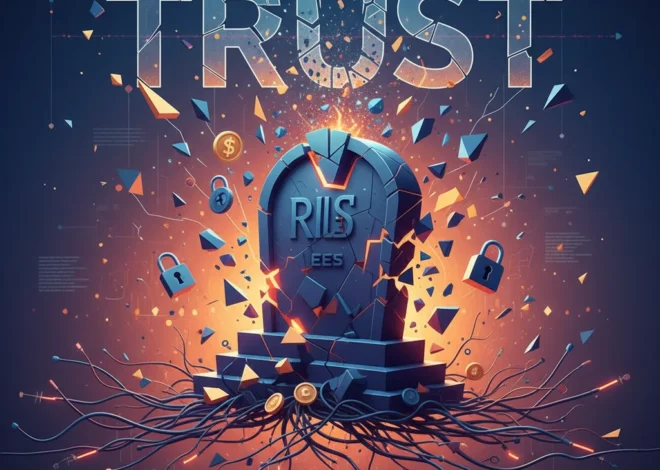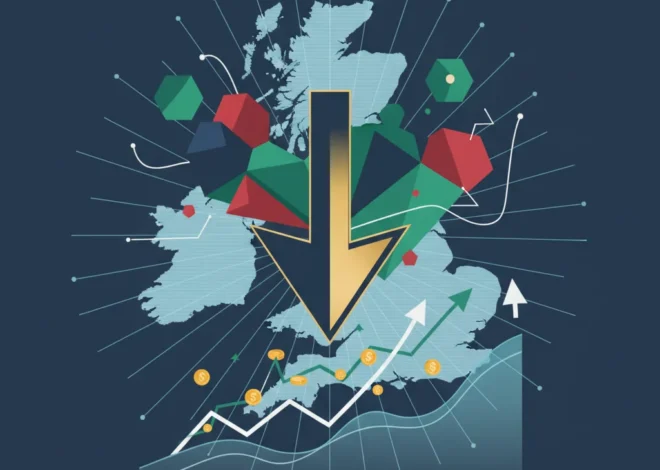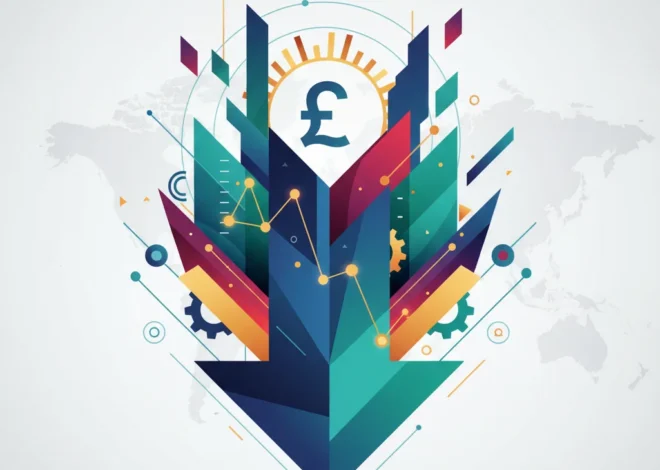
The Ultimate Bull Market: Why Civil Disagreement is the Most Valuable Asset in Today’s Economy
In the relentless pursuit of alpha, investors and business leaders analyze every metric imaginable: P/E ratios, debt-to-equity, cash flow, and macroeconomic indicators. We build sophisticated models to predict market movements and deploy vast sums into complex financial instruments. Yet, we may be overlooking one of the most powerful drivers of long-term value—a cultural asset forged not on the trading floor, but in the lecture halls of our universities: the capacity for civil disagreement.
This might seem like a soft, academic concern, far removed from the hard numbers of finance and the fast-paced world of fintech. However, a recent letter to the Financial Times by Randy Boyagoda of the University of Toronto strikes at the heart of a critical issue for our economic future. Boyagoda posits that universities should be, ideally, “environments of civil disagreement.” This simple but profound idea is not merely an educational philosophy; it is the foundational principle for a robust, innovative, and resilient economy.
When this principle erodes on campus, it sends a leading indicator of future risk for every sector, from banking and investing to financial technology. The skills honed through rigorous, respectful debate are the very skills that prevent corporate catastrophe, spark disruptive innovation, and drive sustainable growth. The absence of these skills creates a vacuum filled by groupthink, a phenomenon that has been the silent accomplice in some of history’s most spectacular business failures.
The High Cost of Consensus: A Financial Post-Mortem
History’s ledger is filled with cautionary tales of companies that collapsed under the weight of unchallenged consensus. From Enron’s fraudulent accounting, rubber-stamped by a compliant board, to the fall of Lehman Brothers, where internal warnings about subprime mortgage exposure were systematically ignored, the pattern is clear. A culture that punishes dissent and rewards conformity is a culture that is blind to risk.
This isn’t just anecdotal. Research consistently demonstrates the tangible financial benefits of cognitive diversity and constructive conflict. A study by McKinsey & Company found that companies in the top quartile for executive-team ethnic and cultural diversity were 36% more likely to have above-average profitability than companies in the bottom quartile. This diversity isn’t just about representation; it’s about fostering an environment where a variety of perspectives can challenge the dominant narrative, leading to better decision-making and more rigorous risk management.
In the world of investing, the entire discipline is an exercise in civil disagreement. A successful investment thesis is one that disagrees with the market’s current price. Every trade is a bet against the consensus. The analyst who simply agrees with the herd adds no value. The real alpha is generated by those who can formulate a contrarian view, support it with evidence, and withstand the pressure of popular opinion. This requires intellectual fortitude and a deep-seated comfort with being the lone voice of dissent—a skill that must be practiced to be perfected.
Trump's Argentina Ultimatum: How One Election Could Reshape Global Finance and Investment
The University: An Endangered Training Ground for Economic Innovators
Historically, universities have been the primary forge for this critical skill. The Socratic method, debate clubs, and seminar-style discussions are all designed to teach students how to think, not what to think. They learn to dissect arguments, identify logical fallacies, engage with opposing evidence, and articulate their own positions with clarity and rigor. This is the intellectual boot camp for the future leaders of the global economy.
When universities pivot from being environments of intellectual sparring to becoming echo chambers of ideological conformity, they fail to produce graduates equipped for the complexities of the modern financial world. A junior analyst who is afraid to question a senior partner’s valuation model, a fintech entrepreneur who cannot handle criticism of their business plan, or a board member who stays silent in the face of a flawed strategy—these are not just individual failings; they are symptoms of a systemic breakdown in intellectual training.
The consequences ripple across the entire financial ecosystem:
- Stagnant Innovation in Banking: True disruption in financial technology, from the rise of digital banking to the development of blockchain, comes from fundamentally disagreeing with the established way of doing things. Without a culture that encourages radical questioning, we risk incrementalism instead of transformation.
- Fragile Stock Market Valuations: An overabundance of consensus can lead to asset bubbles. When analysts and investors are afraid to voice bearish opinions, valuations can become detached from fundamentals, setting the stage for sharp, painful corrections.
- Poor Capital Allocation: Sound economics relies on capital flowing to the most productive and innovative ventures. This process is guided by critical analysis and debate. In an environment of groupthink, capital is more likely to be misallocated to popular but ultimately unviable projects.
Building a Portfolio of Dissent: A Strategic Imperative
For investors and business leaders, recognizing the economic value of civil disagreement is the first step. The second is to actively cultivate and invest in it. This means looking beyond the balance sheet to assess a company’s cultural health.
A culture of productive friction is far more valuable than one of superficial harmony. The table below contrasts the characteristics and outcomes of these two opposing corporate environments.
| Attribute | Culture of Consensus (High Risk) | Culture of Civil Disagreement (High Value) |
|---|---|---|
| Decision Making | Fast, frictionless, and often superficial. Groupthink prevails. | Slower, more deliberate, and rigorous. Assumptions are stress-tested. |
| Risk Management | Blind spots are common. Warnings are suppressed or ignored. | Proactive and robust. Potential risks are identified and debated early. |
| Innovation | Incremental improvements. Disruptive ideas are seen as too risky. | Breakthroughs are common. The status quo is constantly challenged. |
| Talent | Attracts and retains “yes-men.” High performers who challenge ideas often leave. | Attracts and retains top-tier critical thinkers and problem-solvers. |
| Long-Term Outcome | Prone to sudden crises, stagnation, and eventual decline. | Resilient, adaptable, and capable of sustained, long-term growth. |
A PwC survey of global CEOs revealed that 77% see the availability of key skills as a major business threat. While they often refer to technical skills, the most critical and scarcest skill may be the ability to engage in productive conflict.
Beyond the Cap and Gown: Why the UK Graduate Hiring Slump is a Red Flag for the Economy
Actionable Strategies for a High-Disagreement Environment
How can leaders in finance and business translate this understanding into action?
For Investors: When conducting due diligence, go beyond the financials. Ask questions about corporate culture. How are dissenting opinions handled in board meetings? Look for evidence of a “devil’s advocate” role in decision-making processes. Analyze the diversity of thought on the leadership team and board. A company with a healthy culture of debate is a deeply undervalued asset.
For Business Leaders: Actively model and reward civil disagreement. Celebrate employees who respectfully challenge prevailing ideas, even if their challenge is ultimately proven wrong. The act of questioning is valuable in itself. Implement processes like pre-mortems (imagining a project has failed and working backward to find the reasons) to normalize critical thinking and dissent.
For Finance Professionals: Cultivate your own ability to disagree constructively. Frame your challenges with data and logic, not emotion. Learn to separate the idea from the person. Your career progression and your firm’s success may depend on your courage to be the one who asks the tough questions that everyone else is thinking but is too afraid to say.
Conclusion: The Future of the Economy Depends on It
The simple ideal proposed in the Financial Times—that universities should be environments of civil disagreement—is not an abstract academic luxury. It is the bedrock of a dynamic and prosperous economy. The ability to challenge, debate, and refine ideas through rigorous discourse is the engine of innovation in financial technology, the guardian against catastrophic risk in banking, and the driving force behind intelligent investing in the stock market.
As we look to the future, the most successful leaders, investors, and companies will be those who understand that the greatest returns come not from consensus, but from the managed friction of brilliant, diverse minds challenging each other to be better. The health of our economy is inextricably linked to the health of our discourse. Investing in a culture of civil disagreement is the most critical trade we can make.


